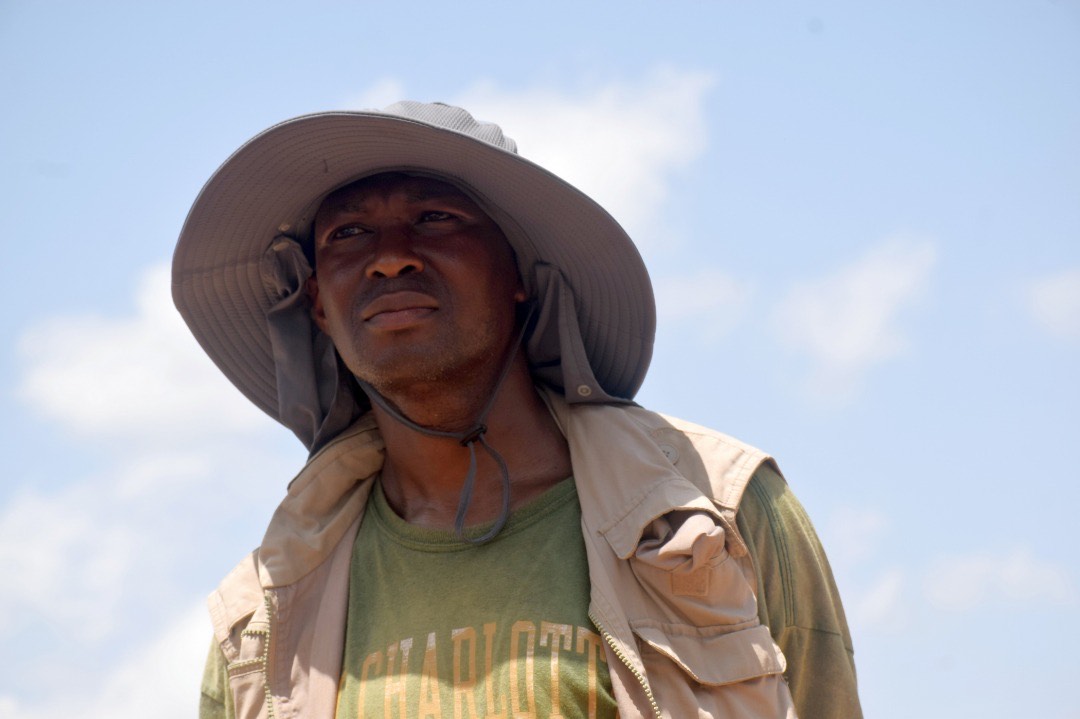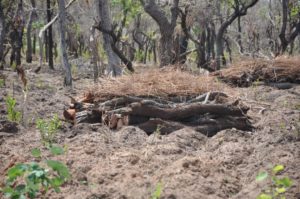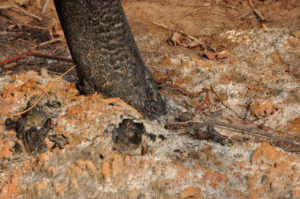society
Save Bara, historic Old Oyo Empire town from destruction, scholar begs Alaafin

society
NOVO Announces Spring 2026 Launch: The World’s First Diamond-Backed Digital Currency and Wealth Platform Devoted to Feeding Africa

NOVO Announces Spring 2026 Launch: The World’s First Diamond-Backed Digital Currency and Wealth Platform Devoted to Feeding Africa
February 2026 — NOVO, an emerging global leader in diamond manufacturing, crypto‑banking, and ethical wealth management, today announced the upcoming Spring 2026 launch of NOVO Coin, the world’s first digital currency fully backed by certified, lab‑grown, cut, and polished diamonds stored in secure vaults in Singapore and Switzerland.
Designed for stability, transparency, and humanitarian impact, NOVO represents a new class of asset‑backed digital currency engineered to serve both global markets and vulnerable economies facing inflation, currency instability, and limited access to banking.
A Currency With a Mission: Feeding a Continent.
In a groundbreaking commitment, NOVO has pledged 50% of all corporate profits to support nonprofit micro‑finance organizations across Africa that specialize in food production, farming, fishing, and sustainable agriculture.
This initiative aims to:
Expand access to affordable capital for small and mid‑scale food producers
Strengthen local food systems and reduce dependency on imports
Dramatically lower grocery prices across African markets
Build long‑term economic resilience for millions of families
NOVO’s leadership believes that empowering Africa’s farmers and food‑producing cooperatives is the fastest path to stabilizing regional economies — and ultimately driving down global food prices.
Diamond‑Backed Stability for a Volatile World
Unlike speculative tokens or inflation‑prone fiat currencies, every NOVO Coin is backed by real, verifiable diamond reserves, manufactured through advanced laboratory processes and held in audited international vaults.
This structure provides:
Intrinsic value tied to a globally recognized commodity
Transparency through third‑party reserve verification
Security via geographically diversified vaults
Long‑term price stability for users and institutional partners
NOVO’s diamond‑reserve system is designed to offer a safe, durable alternative for nations and communities seeking protection from currency devaluation.
A Full‑Spectrum Financial Ecosystem
Beyond the currency itself, NOVO is launching a vertically integrated platform that includes:
Diamond manufacturing and certification
Crypto‑banking and digital asset management
Wealth management and life‑insurance services
Humanitarian micro‑finance distribution channels
This unified ecosystem positions NOVO as one of the first fintech institutions to combine commodity‑backed digital currency with large‑scale social impact.
A New Era of Ethical Finance
“NOVO was built on a simple belief: a currency should serve the people who use it,” said the organization’s founder. “By backing NOVO with diamonds and dedicating half of our profits to African food producers, we are proving that financial innovation and humanitarian responsibility can — and must — coexist.”
Spring 2026: A Global Debut
NOVO Coin will be available to the public in Spring 2026, with early institutional partnerships already underway across Africa, Asia, and the Caribbean.
For more information. Here is the organizations website TOPOFTHEPYRAMID.org
society
Tinubu Mourns Rear Admiral Musa Katagum: A National Loss for Nigeria’s Military Leadership

Tinubu Mourns Rear Admiral Musa Katagum: A National Loss for Nigeria’s Military Leadership
By George Omagbemi Sylvester | Published by SaharaWeeklyNG
“President Tinubu Pays Tribute as Nigeria’s Naval Command Mourns the Sudden Loss of a Strategic Maritime Leader at a Critical Security Juncture.”
Abuja, Nigeria – President Bola Ahmed Tinubu has officially mourned the death of Rear Admiral Musa Bello Katagum, the Chief of Naval Operations of the Nigerian Navy, who died on February 19, 2026, after a protracted illness while receiving treatment abroad. His passing has sent ripples through Nigeria’s defence establishment and national security architecture, marking the loss of one of the most experienced and respected maritime commanders in recent memory.
In a statement released on February 20, 2026 by his Special Adviser on Information and Strategy, Bayo Onanuga, President Tinubu described Rear Admiral Katagum’s death as a “significant blow to the military and the nation,” noting the late officer’s vast experience and “invaluable contributions” to both the Nigerian Navy and the broader “Armed Forces of Nigeria”. The President extended heartfelt condolences to the bereaved family, naval personnel and the nation at large, while praying for solace and strength for colleagues and loved ones.
Rear Admiral Katagum’s career was marked by distinguished service in several strategic capacities. Before his appointment as Chief of Naval Operations in November 2025, he served as Director of the Presidential Communication, Command and Control Centre (PC4) and Chief of Intelligence of the Nigerian Navy-roles that placed him at the nexus of naval operational planning and intelligence gathering. His leadership was widely credited with enhancing the Navy’s capacity to respond to growing maritime threats in the Gulf of Guinea, including piracy, illegal bunkering, and transnational crime.
Security policy experts emphasise that Katagum’s loss comes at a critical juncture for Nigeria. Dr. Adebola Akinpelu, a defence analyst at the Institute for Security Studies, observes that “Nigeria’s maritime domain remains a frontline in the broader security challenges facing the nation; the loss of an adept operational leader like Rear Admiral Katagum is not just a personnel change but a strategic setback.” His insight reflects broader concerns about continuity in military leadership amid intensifying threats.
The Nigerian Navy’s own statement, confirmed by the Directorate of Naval Information, affirmed that Katagum’s “exemplary leadership, strategic insight, and unwavering loyalty” were central to boosting operational readiness and national defence. According to Captain Abiodun Folorunsho, the Director of Naval Information, “His legacy remains a source of inspiration across the services.”
As Nigeria grapples with complex security landscapes at its land and maritime frontiers, the death of Rear Admiral Katagum underscores a broader national imperative: strengthening institutional capacities while honouring the service and sacrifice of those who defend the nation’s sovereignty. In the words of military scholar Professor James Okoye, “Leadership in security institutions is not easily replaceable; it is built through experience, trust and strategic clarity; qualities that Katagum embodied.”
Rear Admiral Musa Katagum has since been laid to rest in accordance with Islamic rites, leaving behind a legacy that will inform Nigerian naval operations for years to come.
society
Viral “Chat With God” Claim Targeting Kenyan Prophet David Owuor Proven False

Viral “Chat With God” Claim Targeting Kenyan Prophet David Owuor Proven False
By George Omagbemi Sylvester, SaharaWeeklyNG
“Viral screenshot sparks national controversy as the Ministry of Repentance and Holiness dismisses fabricated “divine” WhatsApp exchange, raising urgent questions about faith, digital misinformation, and religious accountability in Kenya.”
A sensational social media claim that Kenyan evangelist Prophet Dr. David Owuor displayed a WhatsApp conversation between himself and God has been definitively debunked as misinformation, sparking national debate over digital misinformation, religious authority and faith-based claims in Kenya.
On February 18–19, 2026, an image purporting to show a WhatsApp exchange between a deity and Prophet Owuor circulated widely on Twitter, Facebook, WhatsApp groups and TikTok. The screenshot, allegedly shared during one of his sermons, was interpreted by many as illustrating unprecedented direct communication with the divine delivered through a mainstream messaging platform; a claim that, if true, would have broken new ground in how religious revelation is understood in contemporary society.
However, this narrative quickly unraveled. Owuor’s Ministry of Repentance and Holiness issued an unequivocal public statement calling the image “fabricated, baseless and malicious,” emphasizing that he has never communicated with God through WhatsApp and has not displayed any such digital conversation to congregants. The ministry urged the public and believers to disregard and stop sharing the image.
Independent analysis of the screenshot further undermined its credibility: timestamps in the image were internally inconsistent and the so-called exchange contained chronological impossibilities; clear indicators of digital fabrication rather than an authentic conversation.
This hoax coincides with rising scrutiny of Owuor’s ministry. Earlier in February 2026, national broadcaster TV47 aired an investigative report titled “Divine or Deceptive”, which examined alleged “miracle healing” claims associated with Owuor’s crusades, including assertions of curing HIV and other chronic illnesses. Portions of that investigation suggested some medical documentation linked to followers’ health outcomes were fraudulent or misleading, intensifying debate over the intersection of faith and public health.
Credible faith leaders have weighed in on the broader context. Elias Otieno, chairperson of the National Council of Churches of Kenya (NCCK), recently urged that “no religious leader should replace God or undermine medicine,” affirming a widely accepted Christian understanding that divine healing does not supplant established medical practice. He warned against unverified miracle claims that may endanger lives if believers forego medical treatment.
Renowned communications scholar Professor Pippa Norris has noted that in digital societies, “religious authority is increasingly contested in the public sphere,” and misinformation (intentional or accidental) can quickly erode trust in both religious and secular institutions. Such dynamics underscore the importance of rigorous fact-checking and responsible communication, especially when claims intersect profoundly with personal belief and public well-being.
In sum, the viral WhatsApp chat narrative was not a revelation from the divine but a striking example of how misinformation can exploit reverence for religious figures. Owuor’s swift repudiation of the false claim and broader commentary from established church bodies, underline the ongoing challenge of balancing deeply personal faith experiences with the evidence-based scrutiny necessary in a digitally connected world.
-

 celebrity radar - gossips6 months ago
celebrity radar - gossips6 months agoWhy Babangida’s Hilltop Home Became Nigeria’s Political “Mecca”
-

 society6 months ago
society6 months agoPower is a Loan, Not a Possession: The Sacred Duty of Planting People
-

 society5 months ago
society5 months agoReligion: Africa’s Oldest Weapon of Enslavement and the Forgotten Truth
-

 news6 months ago
news6 months agoTHE APPOINTMENT OF WASIU AYINDE BY THE FEDERAL GOVERNMENT AS AN AMBASSADOR SOUNDS EMBARRASSING










